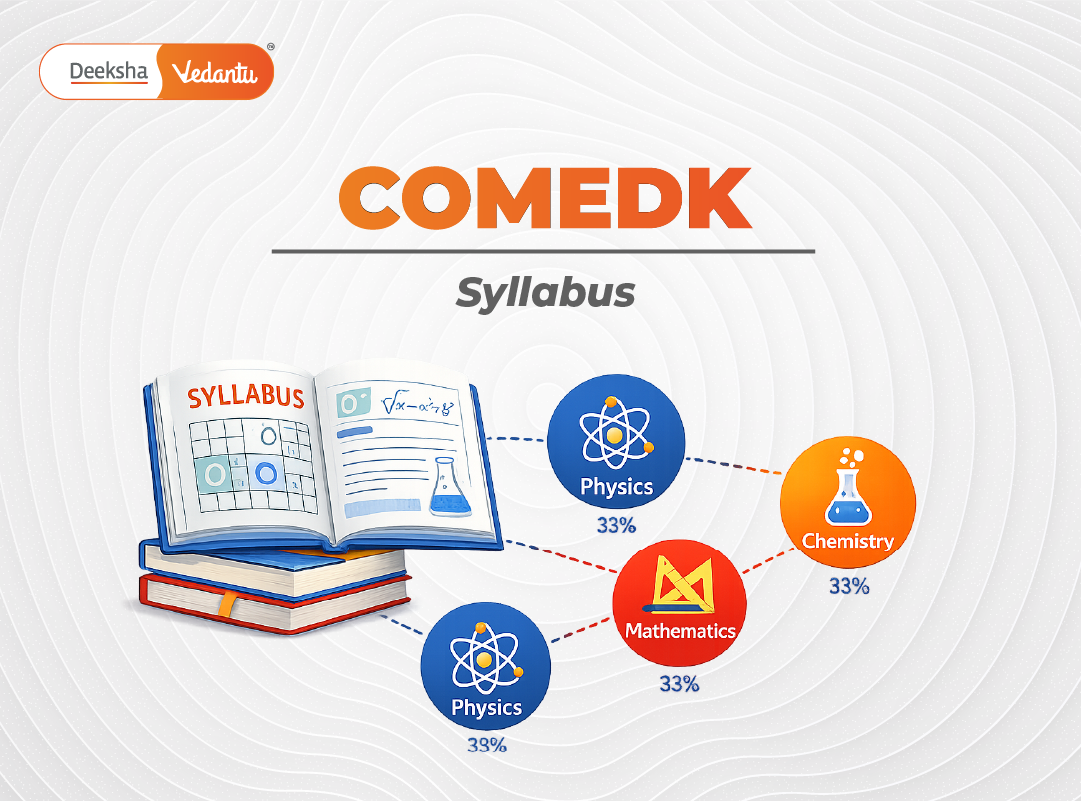How to Score Good Marks In CBSE Class 10?
Introduction
The CBSE Class 10 Board Exams are much more than a mere academic assessment; they represent a pivotal juncture in a student’s scholastic journey. These examinations serve as the foundation upon which the edifice of higher education and professional aspirations are built. As the Central Board of Secondary Education (abbreviated as CBSE) maintains a robust and comprehensive academic standard, the Class 10 exams become a benchmark, setting the tone for further academic pursuits and achievements. Over the years, there’s been a growing emphasis on not just passing but mastering these exams. Thus, the quintessential question arises: how does one navigate this academic milestone successfully? Understanding how to score good marks in board exams isn’t solely about rote learning or long study hours. It’s an art, amalgamating meticulous planning, effective study techniques, consistent effort, and a deep comprehension of the subjects. As we delve deeper into this guide, we aim to unveil strategies, tips, and insights that can transform your approach to these exams, ensuring you not only meet but surpass your academic aspirations.
Understand the Blueprint: CBSE Class 10 Syllabus
Navigating the academic terrain of CBSE Class 10 requires a keen understanding of its blueprint: the syllabus. The CBSE class 10 syllabus 2023-24 is an exhaustive guide, outlining not just the topics to be covered but also providing insight into the weightage of each segment. Knowing this can significantly streamline your study approach. Think of the syllabus as a map; when you know the terrain, you can plot the shortest and most effective path to your destination. The linkage between the syllabus and how to prepare for board exams in class 10 is undeniable. A clear grasp of the syllabus ensures you’re not wasting time on less important topics, allowing you to allocate time efficiently. It sets the stage for targeted preparation, making the journey towards scoring high marks less daunting and more strategic.
Crafting the Perfect Study Plan
Every academic achievement is grounded in the art of meticulous planning. The best time table for class 10 isn’t just a schedule, but a strategic blueprint that ensures a well-rounded coverage of all subjects. Its significance lies in helping students prioritize subjects, allocate ample time for revisions, and systematically tackle the vast syllabus. Meanwhile, a dedicated daily time table for class 10 students serves as a guiding compass, setting clear daily targets, minimizing distractions, and imbuing a sense of purpose to every study session. This regularity reduces anxiety, aids time management, and instills discipline. Merging this with an effective study routine for class 10— which encompasses short-term goals, frequent revisions, and break periods — creates a holistic study regimen. When students align their aspirations with such a plan, they pave a clear path towards academic excellence.
Below is a tabular format for three time-table variants for a Class 10 student. We are assuming typical school hours are from 8:00 AM to 3:00 PM. The subjects covered are English, Math, Science, Social Studies, and a regional language (e.g., Hindi). Each variant will include extracurricular activities and breaks.
Variant 1: Balanced Study with Extracurriculars
| Time | Mon | Tue | Wed | Thu | Fri | Sat | Sun |
| 6:00 – 7:00 | Morning Walk | Yoga | Morning Walk | Yoga | Morning Walk | Sleep In | Family Time |
| 7:00 – 8:00 | Breakfast | Breakfast | Breakfast | Breakfast | Breakfast | Breakfast | Breakfast |
| 8:00 – 3:00 | School | School | School | School | School | Revision | Free Time |
| 3:00 – 4:00 | Lunch | Lunch | Lunch | Lunch | Lunch | Lunch | Lunch |
| 4:00 – 5:30 | Math | English | Science | Hindi | Social Studies | Hobbies | Outing |
| 5:30 – 6:30 | Sports | Music/Dance | Sports | Art/Drawing | Sports | Family Time | Movie |
| 6:30 – 7:30 | Science | Math | Hindi | English | Revision | Hobbies | Dinner |
| 7:30 – 8:00 | Dinner | Dinner | Dinner | Dinner | Dinner | Dinner | – |
| 8:00 – 9:30 | English | Social Studies | Math | Science | Hindi | Reading | Free Time |
| 9:30 – 10:00 | Relax | Relax | Relax | Relax | Relax | Relax | Relax |
Variant 2: Intense Study Focus
| Time | Mon | Tue | Wed | Thu | Fri | Sat | Sun |
| 6:00 – 7:00 | Math | Science | Hindi | English | Social Studies | Sleep In | Morning Walk |
| 7:00 – 8:00 | Breakfast | Breakfast | Breakfast | Breakfast | Breakfast | Breakfast | Breakfast |
| 8:00 – 3:00 | School | School | School | School | School | Math & Science | English & Social Studies |
| 3:00 – 4:00 | Lunch | Lunch | Lunch | Lunch | Lunch | Lunch | Lunch |
| 4:00 – 6:00 | Science | Math | English | Hindi | Social Studies | Science & Math | English & Hindi |
| 6:00 – 7:00 | Sports | Sports | Sports | Sports | Sports | Sports | Dinner |
| 7:00 – 8:00 | Dinner | Dinner | Dinner | Dinner | Dinner | Relax | – |
| 8:00 – 10:00 | Hindi & English | Science & Social Studies | Math & Hindi | English & Math | Revision | Reading | Free Time |
| 10:00 – 10:30 | Relax | Relax | Relax | Relax | Relax | Relax | Relax |
Variant 3: Study with Leisure Breaks
| Time | Mon | Tue | Wed | Thu | Fri | Sat | Sun |
| 6:00 – 7:00 | Morning Walk | Yoga | Reading | Yoga | Morning Walk | Sleep In | Morning Walk |
| 7:00 – 8:00 | Breakfast | Breakfast | Breakfast | Breakfast | Breakfast | Breakfast | Breakfast |
| 8:00 – 3:00 | School | School | School | School | School | Free Time | Outing |
| 3:00 – 4:00 | Lunch | Lunch | Lunch | Lunch | Lunch | Lunch | Lunch |
| 4:00 – 5:00 | Math | English | Hindi | Social Studies | Science | Hobbies | Family Time |
| 5:00 – 6:00 | Leisure/TV | Reading | Leisure/TV | Reading | Leisure/TV | Movie | Family Time |
| 6:00 – 7:00 | Science | Math | English | Hindi | Revision | Hobbies | Dinner |
| 7:00 – 8:00 | Dinner | Dinner | Dinner | Dinner | Dinner | Dinner | – |
| 8:00 – 9:00 | Social Studies | Revision | Hindi & English | Math & Science | Free Time | Reading | Free Time |
| 9:00 – 10:00 | Relax | Relax | Relax | Relax | Relax | Relax | Relax |
These schedules ensure a balance between studies, extracurricular activities, relaxation, and hobbies. Adjustments can be made based on the individual student’s preferences and needs.
Mastering the Art of Revision
Revision is a cornerstone of successful academic preparation, acting as the bridge between initial learning and long-term retention. Understanding how to revise for exams can make all the difference in a student’s confidence and performance. Among myriad revision strategies, the best often entails ‘spaced repetition’. This technique involves reviewing material at increasing intervals, ensuring that information moves from short-term to long-term memory. Moreover, the ‘Pomodoro Technique’, which involves studying in short bursts with breaks, can enhance concentration. Visual aids like mind maps and flashcards cater to visual learners, while reciting out loud or teaching someone else proves invaluable for auditory learners. However, the efficacy of any revision technique boils down to the individual. It’s vital for students to experiment early on, identifying which methods resonate best with their learning style and ensuring they’re equipped for peak performance come exam time.
Active Recall and Self-assessment
A transformative revision technique often overlooked is ‘active recall’, which requires students to remember information without looking at their notes. Instead of just reading through the textbook, one should test oneself, trying to recall the main points of a topic from memory. This proactive approach strengthens neural pathways associated with the learned material, promoting better retention.
Chunking and Grouping Information
Breaking down information into smaller, manageable ‘chunks’ can simplify complex topics. Grouping related information together helps in creating associations, making it easier to remember and recall during exams. For instance, if there’s a chapter with multiple dates or events, creating a timeline or a story can aid in memorizing them in order.
Interactive Study Methods
Engaging multiple senses can enhance memory. Interactive methods like group discussions, teaching peers, or even participating in quiz competitions can reinforce knowledge. Discussing topics with friends or study groups often exposes students to diverse perspectives and interpretations, enriching their understanding.
Consistent Review
Consistency is key. While intense, last-minute cramming might provide a temporary knowledge boost, consistent and periodic revision is more sustainable. It reduces stress, deepens understanding, and helps students stay on top of their material.
In essence, mastering the art of revision isn’t just about reading and re-reading. It’s about being strategic, understanding one’s learning style, and applying techniques that enhance memory and comprehension. As exams approach, armed with these strategies, students can face them with confidence and clarity.
Utilizing Online and Offline Resources
In today’s digital era, Class 10 students have a plethora of resources at their fingertips. Online platforms offer interactive video lessons, practice tests, and expert forums where doubts are clarified in real-time. Websites like Khan Academy, Coursera, or educational YouTube channels provide visual and auditory learning experiences, complementing traditional textbooks. Mobile apps offer quiz-based learning, making revision fun and engaging.
Offline, apart from school textbooks, reference books by reputed authors dive deeper into subjects, offering varied perspectives. Libraries remain treasure troves, housing past papers, guides, and academic journals. Study groups and discussion forums foster collaborative learning, aiding in understanding complex topics through peer interactions.
However, while resources are abundant, discernment is crucial. Students should ensure the credibility of online sources and avoid information overload. By strategically blending online and offline resources, students can gain a comprehensive understanding, elevating their Class 10 preparation.
Health, Wellness, and Studies
The journey to academic excellence is closely intertwined with one’s overall wellness. Healthy habits, both mental and physical, lay the foundation for optimal learning and retention. A well-nourished brain, courtesy of a balanced diet, can concentrate better and processes information efficiently. Regular physical activity, even short daily walks, boosts blood circulation, enhancing cognitive functions and memory. Adequate sleep is non-negotiable; it consolidates learning and rejuvenates the mind for the next day. Moreover, mental well-being, achieved through mindfulness practices like meditation, helps in managing exam-related stress and anxiety. A calm, focused mind is more receptive, aiding in grasping complex concepts with ease. Lastly, periodic breaks and engaging in hobbies can refresh the mind, preventing burnout. In essence, holistic wellness is pivotal in achieving academic milestones. By prioritizing health alongside studies, students elevate their chances of scoring good marks in Class 10.
Last-Minute Studies: How to Maximize Efficiency
The eleventh-hour rush before an exam can be frantic, but with strategic methods, one can maximize retention and recall. Firstly, when studying just a day before the exam, prioritize. Focus on the most significant topics or those you’re least confident about. Skimming through summaries, key points, and highlighted notes can serve as a quick recap. Employ the Pomodoro Technique, breaking study sessions into 25-minute intervals with 5-minute breaks to maintain focus. Active recall remains a top tool; test yourself regularly. Stay away from new, unfamiliar topics as they can cause confusion and stress. Instead, reinforce what you already know. Remember to remain calm and take regular breaks to refresh and avoid burnout. Drink water, do some light stretching, and ensure a good night’s sleep. A well-rested mind is more alert and can recall information better during crunch time.
Aiming for Perfection
Achieving a perfect score in Class 10 might seem like a Herculean task, but with dedication, strategy, and perseverance, it’s within reach. Firstly, it’s essential to have a thorough understanding of the curriculum and examination pattern. This clarity helps in effective planning. Using resources like past papers and mock tests, students can identify their strengths and areas for improvement. Consistent revision, employing techniques like active recall and spaced repetition, ensures information retention. Practice, being the key, helps in perfecting answer writing skills, time management, and reducing errors. Interacting with teachers for insights and feedback further fine-tunes one’s approach. It’s also crucial to stay updated with any syllabus changes, ensuring no topic is overlooked. While aiming for 100 percent is commendable, it’s essential to maintain a balance, ensuring one’s well-being. Ultimately, perfection isn’t just about scores but also about the holistic learning experience.
Beyond Class 10: Planning Ahead
Class 10 is a significant milestone, not just academically but as a precursor to future career paths. Post this crucial stage, students are presented with a diverse list of courses catering to varied interests, from the sciences and commerce to humanities and vocational streams. The choices made post-10th significantly influence university specializations and subsequent careers.
The results of Class 10, beyond being a mark of academic prowess, often guide these decisions. A strong performance can open doors to premier institutions and specialized courses, setting the stage for academic and professional successes.
For students aspiring for a seamless transition to pre-university courses with competitive exam coaching, Deeksha offers an integrated approach. Renowned for its unique blend of academic rigor and holistic development, Deeksha’s PU College ensures students are not only well-prepared for board exams but also competitive ones, paving the way for their dream careers. Choosing wisely post-10th, with institutions like Deeksha, can set the trajectory for a student’s future.
Conclusion
Class 10 is a pivotal phase in a student’s academic journey, often regarded as the stepping stone to higher education and future aspirations. Scoring well is not just about rote learning but understanding concepts, being consistent in revisions, and employing smart strategies. From understanding the CBSE blueprint to mastering the art of revision, from harnessing both online and offline resources to planning ahead for a bright future, every step contributes to academic excellence. Beyond the textbooks and the classrooms, it’s essential to maintain a balance between health, wellness, and studies, for a holistic approach invariably yields the best outcomes. And remember, while scores are significant, true success lies in the learning process and personal growth. As you tread this path, armed with determination and the right resources, remember that excellence is attainable. Your roadmap to success in Class 10 is paved with dedication, strategy, and passion.
Wishing you the best of luck from the entire team at Deeksha.










Get Social